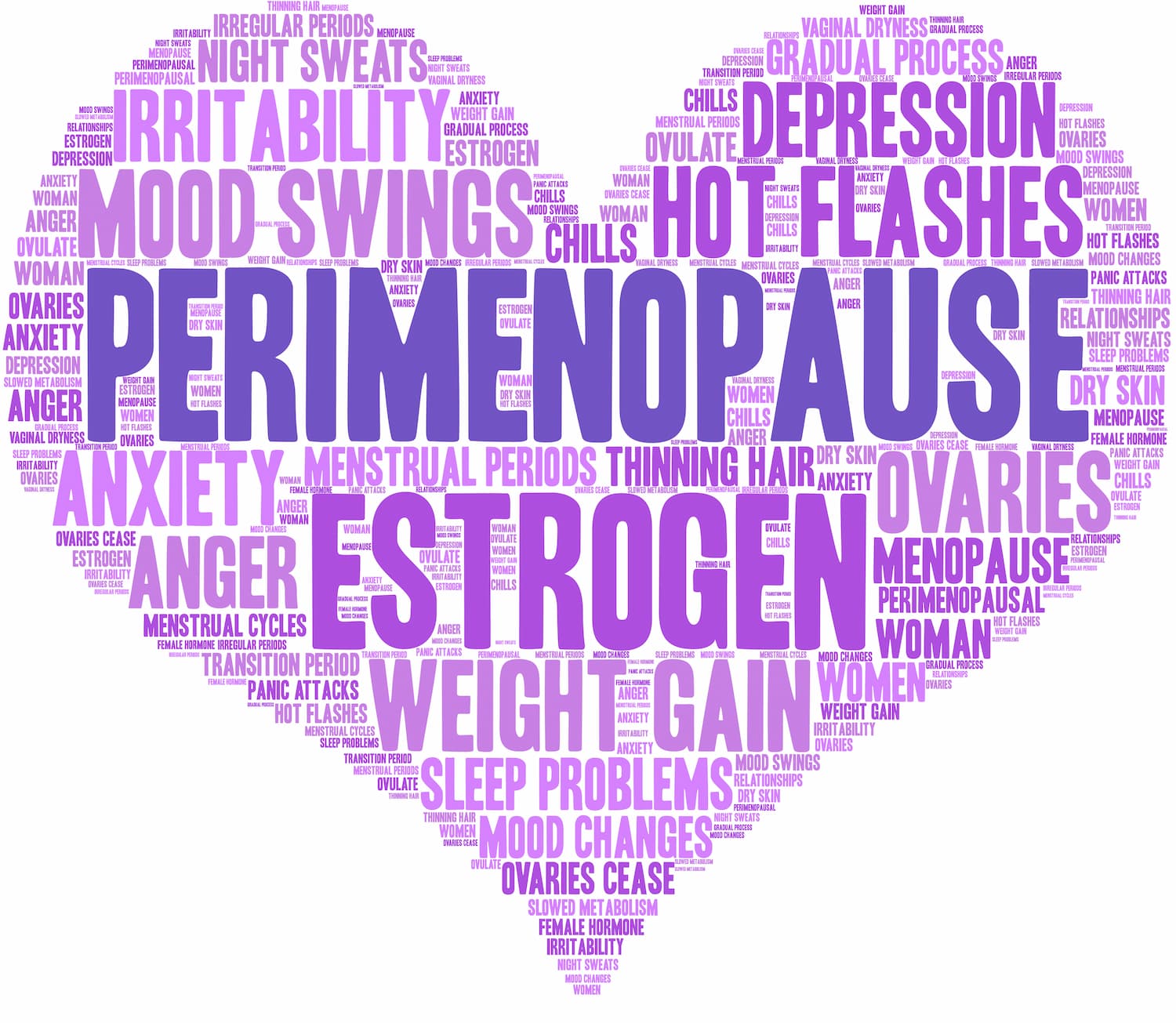The Perimenopause
If you find yourself experiencing problem periods or changing hormonal symptoms in your 30s and 40s, it’s possible you are going through the perimenopause.
You may have heard of the perimenopause and wondered whether it’s something you should be concerned about. Here is everything you need to know.

What is the perimenopause?
Although the term menopause is often used to describe the years leading up to the time before and after a women’s periods stop, in medical terms, the definition of the menopause is the point in time 12 months after a woman's last period. The perimenopause refers to the years leading up to menopause, when there are many changes and women may experience menopausal symptoms. In other words, you may think you're going through menopause when you're actually in perimenopause.

When does the perimenopause begin?
The age the perimenopause begins will vary depending on each individual. For some women, the perimenopause may start in their 30s, which may signal premature menopause – also known as premature ovarian Insufficiency (POI). If you suspect you are perimenopausal in your 30s, seeing a gynaecologist who is a menopause expert is important as you will require hormone replacement therapy (HRT) to protect your heart and bone health. For most women, the perimenopause begins between the ages of 40 and 44.

What is happening in my body during perimenopause?
The perimenopause is a natural process that occurs when your ovaries gradually stop working and release eggs less regularly. The menstrual cycle may become longer or shorter and flow may become irregular before your final period. These symptoms are caused by the changing levels of oestrogen and other hormones.

Can I still get pregnant during the perimenopause?
If you’re still menstruating, you're still ovulating. Although fertility wanes in the perimenopause, it is still possible to get pregnant. You should still use contraception unless you are actively trying to get pregnant.
What are the symptoms of the perimenopause?
Each woman will have their own experience of the perimenopause and indicators will vary. But if you are experience a few of these symptoms of these when you’re in your 40s, it’s likely you are in perimenopause.
- Hot flushes
- Night sweats
- Pre-menstrual tension worsening
- Joint and muscle aches
- Mood swings
- Irregular periods
- Heavy periods
- Vaginal dryness
- Stress incontinence
- Urinating more frequently
- Loss of libido
- Fatigue
- Insomnia

How do I know whether I am in perimenopause?
Your doctor will have a good idea whether you’re in perimenopause by taking a detailed history of your symptoms. The diagnosis can be confirmed with a blood test. However, as hormone levels alter depending on your menstrual cycle, it may be recommended that you have a course of blood tests at different times to be certain.

How long does perimenopause last?
The perimenopause can last between 4 and 8 years. For some women, it will be a very short process – only a few months. Other women may find it continues for ten years. In medical terms, the perimenopause is deemed to have ended when a woman has gone 12 months without a period.
How can I manage my perimenopause symptoms?
Ensuring that you’re eating well, exercising and managing stress levels may be enough to cope with the perimenopause. However, you should seek help for debilitating symptoms. A specialist gynaecologist can treat perimenopausal symptoms with hormone replacement therapy (HRT) and other interventions.

